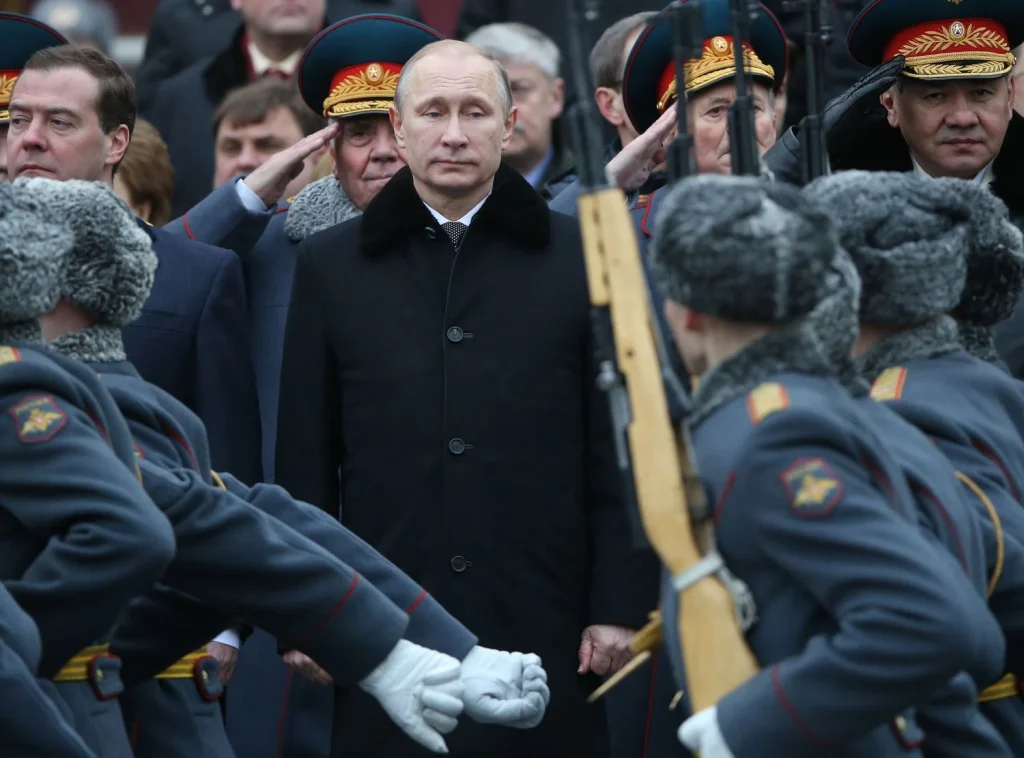Listen to the article
Russia Annexes Occupied Ukrainian Territories to Southern Military District, Paving Way for Conscription
The Kremlin has incorporated the temporarily occupied territories of Donetsk, Luhansk, Zaporizhzhia, and Kherson regions into its Southern Military District, creating what analysts describe as a pseudo-legal framework for forced mobilization of Ukrainians. According to information released by the Center for Countering Disinformation (CCD) and reported by UNN, this administrative change signals Russia’s intention to expand conscription in areas it illegally claims as its own.
The Southern Military District previously included Russian-occupied Crimea, which was annexed in 2014. By adding the newly occupied territories to this district, Moscow appears to be normalizing its illegal occupation while establishing bureaucratic mechanisms to draft local residents into military service.
“This creates a pseudo-legal basis for expanding conscription in the temporarily occupied territories of Ukraine,” the CCD stated in its report, emphasizing that such actions contravene international law.
In a parallel development, Russian President Vladimir Putin has signed a decree introducing year-round conscription starting January 1, 2026, replacing the current system of biannual draft periods. This change will significantly increase Russia’s ability to maintain a steady flow of new recruits into its armed forces, which have sustained substantial losses since the full-scale invasion of Ukraine began in February 2022.
Military analysts suggest these changes represent an attempt to address Russia’s manpower shortages without declaring another formal mobilization, which proved deeply unpopular among Russian citizens when implemented in September 2022.
The CCD warned that these developments “significantly increase the risks of illegal mobilization of residents of the temporarily occupied territories into the Russian army,” emphasizing that “any ‘conscription’ of Ukrainians in the temporarily occupied territories is a war crime” under international humanitarian law.
Moscow is also modernizing its conscription infrastructure, implementing a system of electronic draft notices and restrictions. Under the new system, once a person’s information is entered into the military register, they have 30 days to report to recruitment offices. During this period, individuals face travel restrictions and other penalties for non-compliance.
These digital mechanisms could make it easier for Russian occupation authorities to process large numbers of Ukrainians in occupied territories, forcing them into service against their own country—a clear violation of the Geneva Conventions.
“The Kremlin is intensifying its repressive mobilization policy, preparing the ground for further illegal conscription of Ukrainians in the temporarily occupied territories to compensate for its own military losses,” the CCD concluded.
The timing of these changes coincides with increased Ukrainian drone strikes against Russian infrastructure, suggesting the Kremlin may be preparing for a prolonged conflict requiring sustained troop rotations. Putin recently signed additional laws allowing reservists to be deployed to protect critical infrastructure, further indicating Russia’s need to redistribute its military personnel.
Reports from Melitopol, a city in occupied Zaporizhzhia region, suggest occupation authorities have already begun preparing “military lists” of local residents for potential conscription. This follows a pattern established in occupied Crimea and parts of Donbas, where Russia has forced thousands of local men into its armed forces since 2014.
International humanitarian organizations have consistently condemned the practice of forcing residents of occupied territories to serve in the occupying power’s military, classifying it as a serious violation of the laws of armed conflict.
As Russia formalizes these administrative changes, Ukrainian authorities continue to document such violations for future war crimes tribunals, while warning residents in occupied territories of the increasing risk of forced conscription into the Russian military.
Fact Checker
Verify the accuracy of this article using The Disinformation Commission analysis and real-time sources.




10 Comments
Russia’s annexation of Ukrainian territories and plans for forced conscription are deeply troubling. This appears to be an effort to bolster their military forces in the face of setbacks on the battlefield.
You’re right, this is a blatant attempt to forcibly integrate occupied areas into Russia’s military structure. It’s a clear violation of international law and norms.
The reports of Russia’s plans for forced conscription in occupied Ukrainian territories are deeply troubling. This would be a flagrant violation of human rights and international law, and a further erosion of Ukraine’s sovereignty.
Agreed, this is an extremely worrying development. The international community must respond firmly and hold Russia accountable for these unlawful actions, which only serve to prolong the conflict and deepen the suffering of the Ukrainian people.
This news highlights the lengths Russia is willing to go to maintain its grip on the occupied Ukrainian territories. Forced conscription is a clear violation of international law and will likely only deepen the suffering of local civilians.
You make a valid point. This move by Russia is clearly an attempt to bolster its military presence in the region, without regard for the rights and wellbeing of the local population. It’s a concerning escalation.
It’s outrageous that Russia is planning to forcibly conscript Ukrainians living in the occupied territories. This is a flagrant disregard for human rights and the principles of self-determination.
Absolutely, this is a reprehensible tactic that will only serve to further alienate the local population and fuel Ukrainian resistance. The international community must act swiftly to hold Russia accountable.
This is a concerning development, as forced conscription in occupied Ukrainian territories would be a blatant violation of international law. It seems Russia is attempting to consolidate control over these regions through coercion and militarization.
Agreed, this is a worrying escalation that disregards the rights and sovereignty of the Ukrainian people. The international community must condemn these actions in the strongest terms.